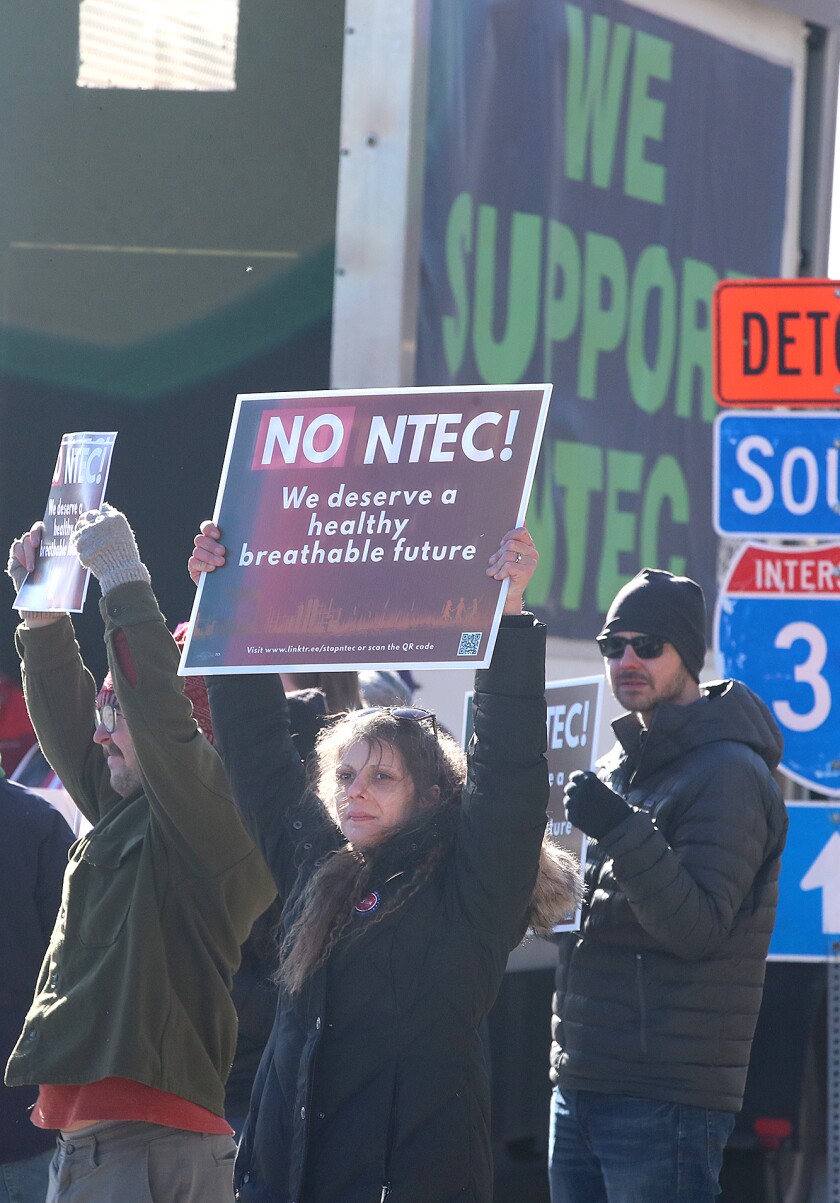SUPERIOR — Minnesota Power officials set the record straight on misinformation circulating in the community about the proposed Nemadji Trail Energy Center.
Neighbors Against NTEC members told plan commissioners Wednesday, March 20, how the proposed 625-megawatt, natural gas plant doesn’t align with six of the 10 goals established in the city’s comprehensive plan.

More than three dozen people from around the region and state — for and against the electricity generating plant — each had three minutes to explain why the Plan Commission should or should not approve land use changes requested by Minnesota Power.
In the end, the Plan Commission made no recommendation to the City Council to vacate streets and alleys in the project area or rezone property for heavy manufacturing.
Commissioners divided 4-2 against motions to approve the land use changes requested by Minnesota Power in two separate votes.
ADVERTISEMENT
Commissioners Brent Fennessey and Ann Porter voted in favor of the motions. Commissioners Jim Paine, Garner Moffat, Lindsey Graskey and Brian Finstad voted against the motions, resulting in a failure to adopt any of the motions made by Fennessey.

“One of the things that I feel like it’s really been a negative for Superior is that we’re surrounded by all of this water and so much of the water is tied up by industry that does not utilize a waterfront,” Finstad said. “I have no problem with prime waterfront being tied up for some purpose that is dependent on the waterfront. But when we’re tying up waterfront for uses that are not dependent on the water, I just think that’s bad land use planning.”
Originally, NTEC was designed to be water-cooled, but the design was changed to an air-cooled system after Douglas County Board Chairman Mark Liebaert expressed concerns about a water-cooled plant.
“I do believe that they had mentioned that the location does still make sense even though it doesn’t require the water from the river, because of the major infrastructure that’s already there,” Porter said. “There’s already something for it to follow safely that’s already regulated by other industries. And so I do think that location still does warrant … being in that location.”
Moffat, who had myriad reasons for rejecting the land use changes, said Superior has very permissive zoning codes.
“Even if this facility operates cleanly and successfully for 40 years, and is then safely cleaned up for property reuse, many of the other uses allowed in our industrial zoning are not appropriate for riverfront property,” Moffat said.
Company officials with Minnesota Power were disappointed that commissioners didn’t make recommendations on the routine land use changes, said Amy Rutledge, spokesperson for Minnesota Power. She said if the council doesn’t approve the land use changes, the city would be throwing away a partnership with Minnesota Power as well as an estimated $1 billion project, 350 construction and 25 permanent jobs and $1 million in annual tax revenue.
The council considers the land use changes when it meets April 3.
ADVERTISEMENT
















